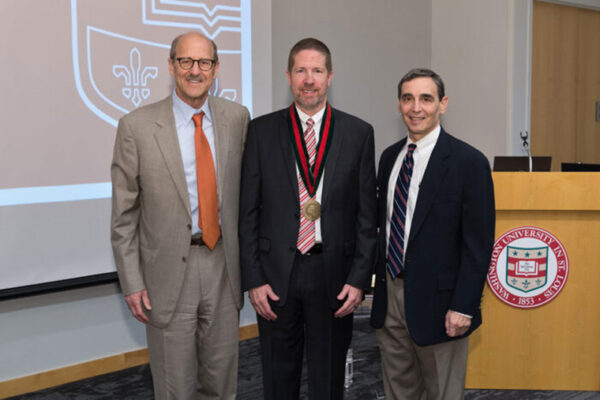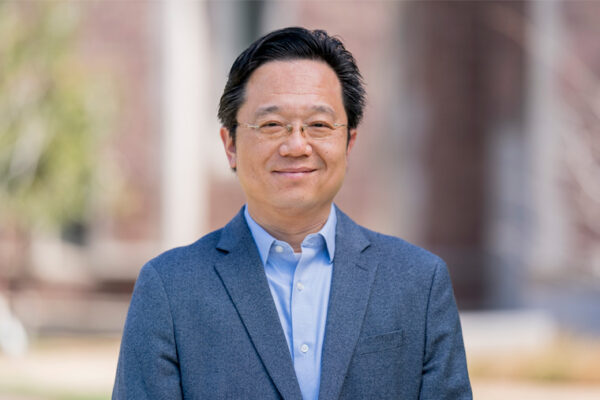WashU team to study virus transmission, human-wildlife interaction
Red colobus monkeys are the most threatened group of African monkeys. With a grant from the National Institutes of Health (NIH), a Washington University team will model viral transmission dynamics among red colobus monkeys and their human neighbors near Kibale National Park, Uganda.
Anesthesiologist volunteers with group that treats Ukrainian pediatric burn patients
Anesthesiologist Justin G. Knittel, MD, at the School of Medicine, volunteers for the nonprofit organization Doctors Collaborating to Help Children. The medical team provides care for Ukrainian children with burn injuries, and the need has grown since Russia’s invasion.
Noninvasive technique helps visualize inflammatory cells in human heart
A study in Nature Cardiovascular Research by researchers at the School of Medicine explores a new, noninvasive imaging technique that helps scientists visualize immune cells in the human heart.
AI for Health Institute launches to promote growing intersection of artificial intelligence, health
Washington University has launched the AI for Health Institute to design data-driven tools to characterize complex diseases, support clinical decisions and drive precision health. The institute was introduced at the AI & Digital Health Summit, held Oct. 18-19 at the university.
Biotech industry leader to helm WashU drug development accelerator
Shripad Bhagwat, a drug development expert with decades of experience in the pharmaceutical and biotech industries, has been named the inaugural senior director of the university’s Needleman Program for Innovation and Commercialization.
Cordell Institute appoints new faculty co-director
The university’s Cordell Institute for Policy in Medicine & Law announced the appointment of a new faculty co-director from the Washington University School of Medicine in St. Louis, Richard Cote, MD, the Edward Mallinckrodt Professor of Pathology.
Hunstad named inaugural Strauss Professor
David A. Hunstad, MD, a respected pediatric infectious diseases specialist and a national leader in pediatric research training, has been named the inaugural Arnold W. Strauss, MD, Endowed Professor for Mentoring at the School of Medicine.
Award for paper on predicting postoperative complications with wearables, AI
A paper published by an interdisciplinary team led by Chenyang Lu at the McKelvey School of Engineering received a Distinguished Paper Award from the Proceedings of the ACM on Interactive, Mobile, Wearable and Ubiquitous Technologies.
Gordon receives Albany Prize
Jeffrey I. Gordon, MD, the Dr. Robert J. Glaser Distinguished University Professor and director of the Edison Family Center for Genome Sciences & Systems Biology at the School of Medicine, has been recognized with the 2023 Albany Medical Center Prize in Medicine and Biomedical Research.
Baldridge receives Avenir Award for early-career scientists
Dustin Baldridge, MD, PhD, an assistant professor of pediatrics at the School of Medicine, has received a 2023 Avenir Award in Genetics and Epigenetics of Substance Use from the National Institute on Drug Abuse.
Older Stories








